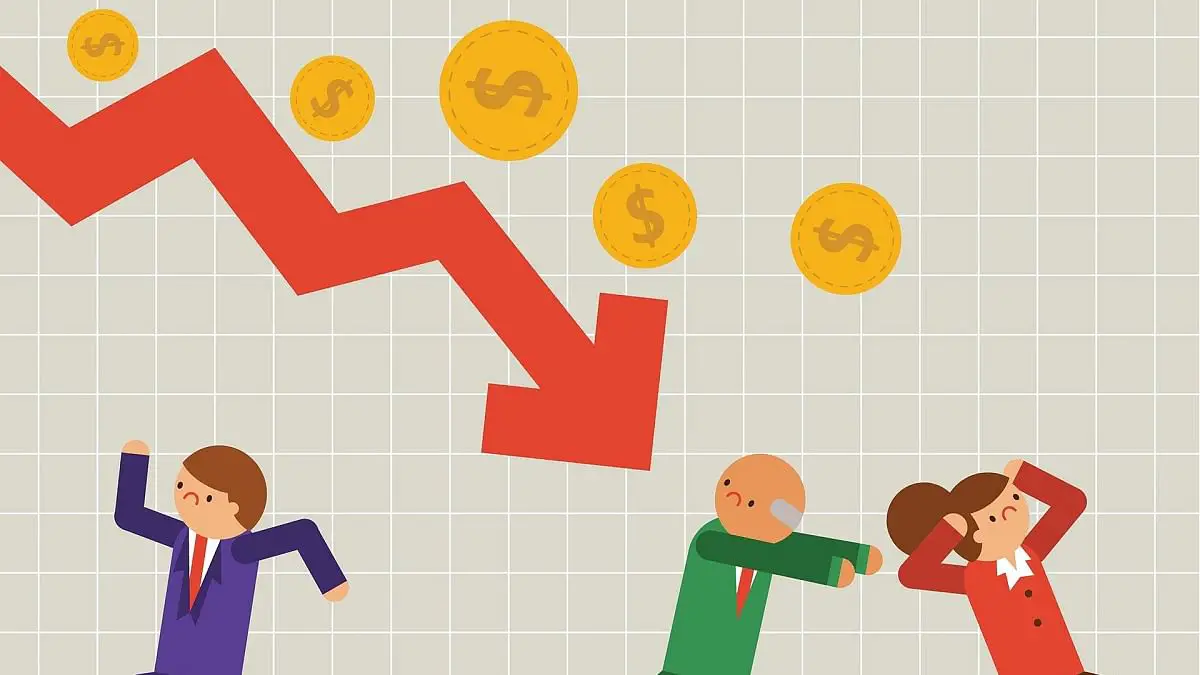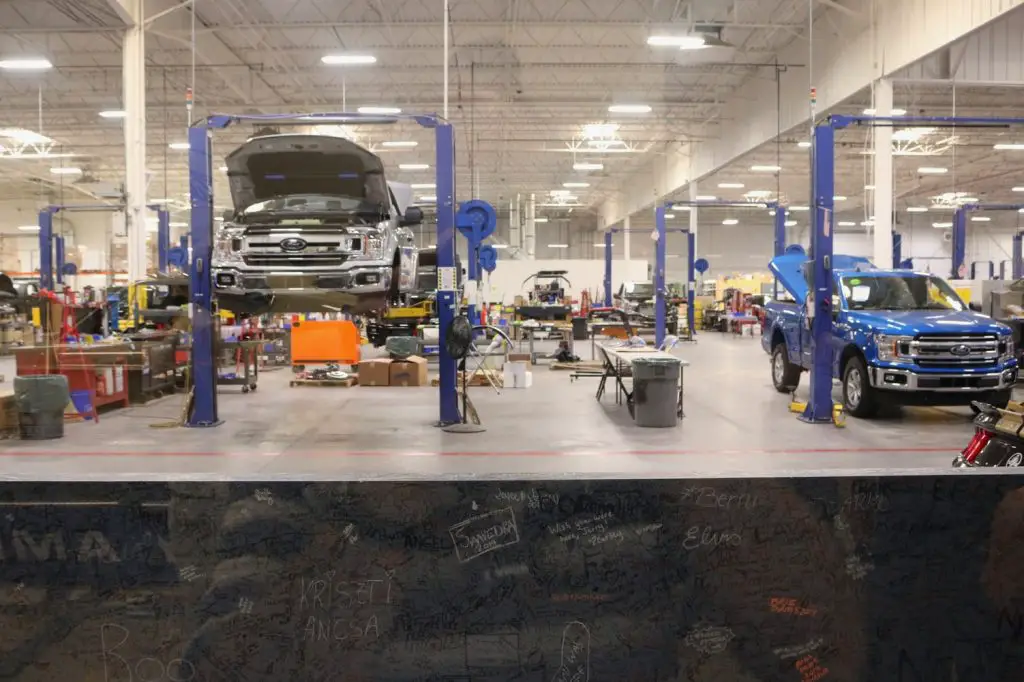
CommonCentsMom.com is advertiser-supported: we may earn compensation from the products and offers mentioned in this article. However, any expressed opinions are our own and aren't influenced by compensation. The contents of the CommonCentsMom.com website, such as text, graphics, images, and other material contained on this site (“Content”) are for informational purposes only. The Content is not intended to be a substitute for professional financial or legal advice. Always seek the advice of your Financial Advisor, CPA and Lawyer with any questions you may have regarding your situation. Never disregard professional advice or delay in seeking it because of something you have read on this website!
Due to the recent onslaught of the COVID-19 pandemic, worldwide economies witnessed a major downturn. This recession caused the unemployment rate to surge to a staggering 14.8% in April 2020, the highest unemployment rate ever recorded to date. Even today, the unemployment rate remains higher than it was in February 2020, before the pandemic, causing millions to look for new jobs across the world.
With industries such as tourism completely collapsing due to the current global travel restrictions, many have started to search for jobs that are more stable and recession-proof. Sure, there is no job that is 100% recession-proof, but there are a number of different industries and jobs that are considered essential, and therefore don’t suffer as much during recessions.
The jobs listed in this article are considered to be more stable simply because they continue to be in demand even when a country’s economy faces a downturn. Therefore, these jobs are more likely to provide better job security in the face of adversities such as global recessions than others.
Here are the top 20 recession-proof jobs that will continue to grow for the next decade.
1. Healthcare Providers
Regardless of a global recession or any other calamities that may occur across the world, the healthcare industry will continue to be in demand. Sure, people may forgo voluntary and cosmetic medical procedures such as plastic surgeries in the face of a recession. However, if you work as a nurse, radiographer, or doctor treating patients for any physical or mental distress, your job will likely remain safe.
Recessions don’t affect people who need surgeries or pregnant women who need ultrasounds. Medical healthcare continues to boom regardless of the situation of a country’s economy. Therefore, working in the medical industry is perhaps the most recession-proof employment you can find.
2. Accountants
Whether the economy is booming or in a downward swing, people need to pay their taxes.
It is also essential for businesses to hire accountants to keep a record of their finances, do their bookkeeping and file their tax returns. Therefore, even during global recessions, accountants (and most jobs in the finance sector) seem to enjoy a higher level of job security than others.
3. Teachers
Regardless of the financial situation the economy is facing, children need to be educated. Even with the work-from-home restriction brought on by the global pandemic, kids continued to learn online. Teaching is a profession that will always be considered essential across the world and therefore is one of the most secure jobs one can find.
Being an educator also comes with other benefits. If you work in higher education, you can benefit from a tenure, ensuring you are paid regardless of a recession.
4. Grocery Store Workers
You can cut a percentage of your weekly grocery budget if you’re trying to save money, but you still have to buy the essentials you need. In fact, since people visit restaurants and bars less during economic downturns, they tend to visit the grocery store more often to purchase food and liquor. Therefore, grocery stores continue to remain in demand even during recessions, and hence offer jobs that provide more stability.
Working for a high-end grocery store that sells expensive organic food might not be recession-proof. However, working at your local supermarket is definingly going to provide you a higher level of job security than many other employment opportunities.
5. Senior Care Providers
Recessions don’t stop people from aging, and as people grow older they need the aid of senior care providers. Many older people stay in assisted living facilities, and this opens up a variety of employment opportunities for senior care providers, as these facilities employ a number of nurses, cooks, cleaners, and orderlies to take care of their residents.
Some elders might choose to stay at home, but still require help from nurses or other support staff. All of these jobs remain safe regardless of the situation of the economy. People continue to grow, and therefore the need for senior care providers continues to be in demand, regardless of any recession or calamity taking place in the world.
6. Firefighters
Global recession or not, fires continue to happen. Therefore, the need for firefighters will never run out. Studies have shown that when buildings remain vacant during recessions, there seem to be a larger number of fires that take place. Hence, working as a firefighter is considered to be an essential and stable job.
The entry into the industry is relatively easy. Employees simply need a high school diploma and need to undertake some training to apply for a job. Firefighters can also further their careers by studying more about fires and advance to higher-paid jobs.
7. Delivery Drivers
Online shopping has been on an upward trend over the past few years. The onslaught of the COVID-19 pandemic only increased people’s need for on-demand services. Today, people rely on delivery apps and websites for everything from everyday essentials to restaurant meals, clothes, electronics, and school/office supplies.
The need for delivery drivers is only increasing every day, and there are a host of different companies people can work for. Not only is this a relatively recession-proof and stable job, but also allows for a more flexible work schedule. People can work with a number of different apps such as DoorDash, Deliveroo, and Instacart at once, and take on as many hours as they like each week.
8. Auto Mechanics

It’s likely that people won’t be shelling out money to buy new vehicles during recessions. However, they still need to ensure their old vehicles run smoothly. Cars break down all the time, and therefore the need for auto mechanics and body shops remain high even during times of financial distress.
9. Government Employees
During the Great Depression and the COVID-19 pandemic, government employees witnessed the lowest unemployment rate compared to other industries.
Government jobs offer a high level of stability, are more secure during recessions, and can come with great benefits.
There are a number of different jobs you can undertake when working for the government. Whether you work for the federal government, the state government, or your local government, you can apply for jobs in a variety of fields such as public health and taxation.
10. Plumbers
Plumbing is an essential need, and therefore plumbers are considered to be essential regardless of a country’s economic situation. It’s a secure job with a relatively low barrier to entry. To start working as a plumber, you need to complete your high school diploma, as well as a 4-5 year paid apprenticeship program.
11. Funeral Home Workers
Over 150,000 people die every day across the world, and therefore there is a vast demand for funeral home workers each day. It doesn’t matter if the economy is doing bad or good, people still need to be laid to rest by their families.
Yes, some people may choose less expensive caskets and funeral services during a recession, but they will still require the help of funeral home workers to lay their loved ones to rest. Therefore, working at a funeral home is considered to be a relatively secure and recession-proof job.
12. Police Officers
Unfortunately, even during a global economic recession, crime doesn’t stop. In fact, previous data has shown that crime rates tend to rise during times of financial crisis. Therefore, law enforcement remains as important and crucial to society as ever. Regardless of what’s happening in the world, police officers will always be needed.
It’s a mentally and physically challenging job. However, for those who are up to the challenge, working in law enforcement can provide you with a relatively stable and secure line of work.
13. Veterinarian
Just like humans continue to need healthcare professionals during recessions, so do animals. Veterinarians treat domestics pets and livestock and therefore continue to be crucial to society even during periods of financial distress.
Veterinarians help diagnose animals, perform surgeries when needed, prescribe medication, and treat any other ailments. Working as a veterinarian is considered to be a stable profession that provides a high level of job security even during economic downturns.
14. Lawyers
Not all types of law are recession-proof. However, if you work as a divorce lawyer, or work on cases dealing with bankruptcy or criminal charges, you are likely to enjoy a high level of job security.
Recession or not, people continue to get divorced and file for bankruptcy. In fact, economic downturns can lead to a higher number of people filing for bankruptcies, and more divorces caused by financial distress in relationships. Therefore, the need for lawyers continues to stay high in demand even when the economy suffers.
15. IT Professionals
Our world today revolves around technology, and therefore regardless of a recession, help from IT professionals continues to be sought after by millions each day. People seek internet troubleshooting, phone network support, computer repair, and help with a number of other internet services every day.
There is a variety of jobs available in the information technology field. You can apply to be a data analyst, a programmer, a developer, a computer service administrator, or for a number of other jobs depending on your skills and ability. Even when companies can’t afford office space during recessions, IT workers can remain to be employed by continuing their work from home online.
16. Pharmacists
Even during recessions, the healthcare industry continues to boom. Regardless of their financial situation, people need to purchase over-the-counter medicines and fill out their prescriptions.
The need for certain medications to treat anxiety and panic disorders can even be increased during times of financial crisis. Therefore, pharmacists are always in demand and continue to enjoy a sufficient number of customers.
17. Mental Health Workers
Regardless of how much they cost, mental health workers are considered essential and remain high in demand. During times of financial crises, people tend to need even more support from psychologists and counselors due to the added stress brought on by recessions.
Recessions can also lead to an increase in marital and substance abuse issues. Therefore, the need for mental health workers remains healthy even when the economy is bad. There are many well-paid and stable jobs one can apply for in the mental health industry. Whether you work as a marriage counselor, a therapist, a psychiatrist, or a substance abuse worker, you are likely to benefit from a high level of job security and stability.
18. Judiciary Workers
Since crime doesn’t take a break during global recessions, the court needs to remain open. This allows for a stream of stable employment opportunities for people to choose from.
Whether you’re a judge, a bounty hunter, a clerk, or a bailiff, it’s likely you will continue to be employed regardless of your country’s financial situation.
19. Public Utilities Employees
Even if you cut expenses due to a bad economy, you still need to budget for essentials such as electricity, water, telephones, and sewer services. Hence, the demand for utilities never dies.
People employed by the government or private companies that offer public utilities continue to keep their jobs. You can apply to work as a service representative, a sales representative, a technician, or for a host of other employment opportunities.
20. Public Transport Employees
When people are looking to cut expenses during a recession, they are less likely to buy their own vehicle or pay for cabs. Public transport offers the cheapest mode of travel and therefore continues to be high in demand even during times of economic crises.
People can apply for a variety of jobs in the public transport industry. Whether you work as a bus driver, a ticket collector, or a customer service representative, you are likely to keep your job and be able to collect your paychecks even when the economy fails.






